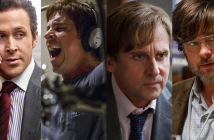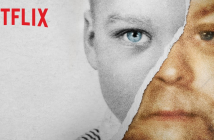Editor’s Note: This September marks the 25-year anniversary of Martin Scorsese’s Goodfellas.
Back in 1994, I was a 13-year-old kid who was just starting to realize I loved movies for more than just entertainment. I was watching as much as I could when I saw a film that completely changed how I view movies: Goodfellas. I taped it from whatever movie channel we had at the time. It was with this film (and Pulp Fiction, which I’d also seen around the same time) that I finally understood what ‘film as art’ really meant and it changed my life.
Scorsese…opens on a bloody and excessive act of violence before freeze-framing and giving Liotta the “Call me Ishmael” of filmmaking: “All my life, I always wanted to be a gangster,” and we’re off and running.
The quality imbued in Goodfellas is hard to explain but easy to understand. Scorsese grabs you immediately and draws you into the world of Henry Hill (Ray Liotta) and never lets you go. He opens on a bloody and excessive act of violence before freeze-framing and giving Liotta the “Call me Ishmael” of filmmaking: “All my life, I always wanted to be a gangster,” and we’re off and running.
The story is of Henry Hill, half Irish and half Sicilian, who grew up across the street from a wiseguy hang-out. At thirteen he gets a job there, at the cab stand run by the brother of the local mob boss Paulie (Paul Sorvino). He starts making deliveries, running numbers, parking cars, anything they need him to do. He’s introduced to Tommy (played as a kid by Joseph D’Onofrio and later Joe Pesci in his Oscar-winning role) and the two start doing jobs together. The pair are later introduced to Jimmy ‘The Gent’ Conway (Robert De Niro), who is in his late 20s, and they start working together, forming a bond that would last most of their lives.
 What is amazing about this film is that it is one of many Scorsese films in which he takes unappealing characters and makes them engaging to the point that you’re actually rooting for them. He did it in Mean Streets, Taxi Driver, Raging Bull, The King of Comedy, and after Goodfellas he did it with Casino, Gangs of New York, The Departed and The Wolf of Wall Street. The only other filmmaker who could do this well was Sam Peckinpah, and even he was only occasionally successful (his ultimate expression of it was in The Wild Bunch). Scorsese has a knack of bringing out the identifiable and human characteristics in even the vilest of people, like Jake La Motta in Raging Bull. He connects us to what it is about them we see in ourselves and uses that to generate some level of sympathy while at the same time using it to make us realize these characters should get what’s coming to them.
What is amazing about this film is that it is one of many Scorsese films in which he takes unappealing characters and makes them engaging to the point that you’re actually rooting for them. He did it in Mean Streets, Taxi Driver, Raging Bull, The King of Comedy, and after Goodfellas he did it with Casino, Gangs of New York, The Departed and The Wolf of Wall Street. The only other filmmaker who could do this well was Sam Peckinpah, and even he was only occasionally successful (his ultimate expression of it was in The Wild Bunch). Scorsese has a knack of bringing out the identifiable and human characteristics in even the vilest of people, like Jake La Motta in Raging Bull. He connects us to what it is about them we see in ourselves and uses that to generate some level of sympathy while at the same time using it to make us realize these characters should get what’s coming to them.
The thing about Goodfellas is that it’s less about what Henry and his friends are doing and more about how Scorsese portrays it. He makes a point of showing how much fun it would be to live this life and then in the same scene show something that is so appalling that you’d have to be crazy to think this is the life you’d want to lead. The best example of this is the scene where a very young Michael Imperioli’s Spider was shot in the foot by Tommy and the next day tells Tommy ‘go fuck yourself.’ This elicits a lot of praise from the guys in the room, while Tommy sits and stews. Jimmy, jokingly, asks if Tommy’s going to ‘let this punk get away with that?’ and Tommy replies by pulling a .45 and shooting Spider in the chest several times. Everyone joking and having a good time and suddenly someone is murdered. That’s how these men lived.
Amongst the myriad of pieces that makes Goodfellas sing are the pitch-perfect performances.
And that is why all the claims over the years of Goodfellas and Scorsese glamorizing the mob lifestyle and violence are erroneous. Scorsese makes the point of showing that sure, the money would be great and the ability to do pretty much whatever you wanted to do would be great, but it comes at a price which could be your life. This is the point that all the people who watch films like this, Scarface, Casino and more recently Spring Breakers fail to see. They see the money and the power but apparently don’t watch the end when the people living like this get brutally killed because of this life.
Amongst the myriad of pieces that makes Goodfellas sing are the pitch-perfect performances. This was only Ray Liotta’s fourth film and it’s the one that put him on the map and also the one he has yet to live up to. He holds his own against heavyweights like De Niro and Pesci in a grand fashion. He’s naturalistic and nuanced, able to communicate with a glance or a casual movement what some actors would try to take a paragraph to say and fail. He inhabits the role of Henry Hill to the point that it becomes eerie. Add to that one of De Niro’s finest performances and you get something altogether different. Then there’s Pesci. Pesci gives us everything he has and more in Tommy. He even came up with his most famous scene, the ‘do I amuse you?’ scene. He improvised that scene with Liotta during rehearsals because he’d actually witnessed something like it between two wiseguys in a bar. The two worked up the scene with Scorsese and didn’t do it in front of the other cast members. When that was happening on film, the people around the pair didn’t know what was happening and all of those reactions were genuine. Pesci and Liotta sell it completely through their performances, even giving an extended pause while Henry processes the interaction and decides Tommy is messing with him. But the thing about Tommy is: you still don’t know even after he laughs it off if he was kidding or not.
That is Scorsese’s genius in the film. He frames that scene wide so you could see all the people around Henry and Tommy instead of doing close-ups to get their reactions. He proves that you don’t need traditional techniques when your scene or your film is strong enough to withstand them. He flaunts conventions time and time again with his masterful director of photography Michael Ballhaus. Early in the film, we’re introduced to the gangsters in the bar in a point of view shot with narration, telling us the names and moving through the bar like we’re being escorted by Henry with him talking in our ear so we know who’s who. There is also the famous Copacabana sequence, shot in one unbroken take, following Henry and Karen (Loraine Bracco) from Henry’s car, through the service entrance and the kitchen, coming out at the front of the line and getting a table put in the front for the show starring Henny Youngman. It whisks us away and makes us fall in love with Henry as much as it did Karen.
Scorsese and co-screenwriter Nicholas Pileggi (with whom Scorsese would re-team with to write Casino five years later) also throw out convention by not only creating a narrator in Henry, but adding in a second narrator with Karen. Films rarely if ever change perspective, but this one does it so grandly that at first, no matter how many times you’ve seen the film, Karen’s narration is jarring the first time it’s heard but it’s done so well and so organically it seems natural almost as suddenly as it was surprising. They make the story as much hers as it is Henry’s and it makes sense since now that Henry was in the life, we no longer had an outsider to associate with. We’d come along with young Henry and we were seeing him in his full blossom, then we get an outsider, someone like us, to come along and relate what it was like to join in at that point. Adding Karen as a narrator gives Goodfellas a quality that no other mob movie has: the wife’s perspective. It not only creates a genuine and three-dimensional character for Bracco, it actually doesn’t dismiss her because she’s not one of the gangsters. It gives her a voice and makes her a driving force for the remainder of the film.
There is one more aspect of Goodfellas that makes it stand out from the horde of other mob/gangster films: it’s about the day-to-day lives of the work-a-days that go out and do the crimes for the bosses without ever rising to that level themselves. This is in stark contrast to the 30s films like Little Caesar, Angles with Dirty Faces and Public Enemy or even The Godfather series that show people working their way up or already on the top of the food chain, getting other people to do their work for them. Goodfellas is interested in the guys who make the bosses the money without ever showing the bosses themselves. Sure, Paulie is a constant presence, but he’s the neighborhood boss (a capo or caporegime) who reports to others who report to still more people before getting to the head of the family (which, incidentally, was the Lucchese family, one of the ‘five families’ of New York). We never hear the name Lucchese, but Gambino is mentioned when Billy Bats is murdered. Henry and his crew aren’t concerned with those guys up at the top, they just do what they need to do to make money for themselves and Paulie and keep their lifestyle. Scorsese was no stranger to this approach, having made Mean Streets in much the same attitude, but this was on a much grander scale, going into the ins and outs of organized crime in a way that had never been done before and has never been done since.
Scorsese made a masterpiece with Goodfellas, of that there can be no doubt. Some will say that the film is too long or that the ending is unsatisfying, but that’s missing the point of the film. We need to see Henry’s downfall as much as we need to see him at his most successful. Without that turn to drugs and him ultimately betraying his family, we would never see how disturbing the mob world truly is. Henry needs to inform so he can live. If he doesn’t, he and his wife will surely die and not just be killed but be killed by the people they love the most outside of their own children. Scorsese’s whizzing pace combined with Thelma Schoonmaker’s careful but fast-paced editing make this a treat to watch and make the 146 minutes shoot by. Scorsese’s careful and deliberate framing of each scene, letting the actors breathe life into their characters that were so wonderfully written, makes every frame of Goodfellas interesting and immediate. Scorsese created a spectacular film that now at 25 years old can rightfully be called a classic because it has stood the test of time and will continue to do so 25 and 50 years from now. Goodfellas is one of the best films ever made and one day, if that day has not already come, it will be remembered in the same breath as Citizen Kane, Casablanca and The Godfather and it will not be out of hype or fanboy hyperbole, but out of genuine acknowledgment of the masterful piece of work it is.



